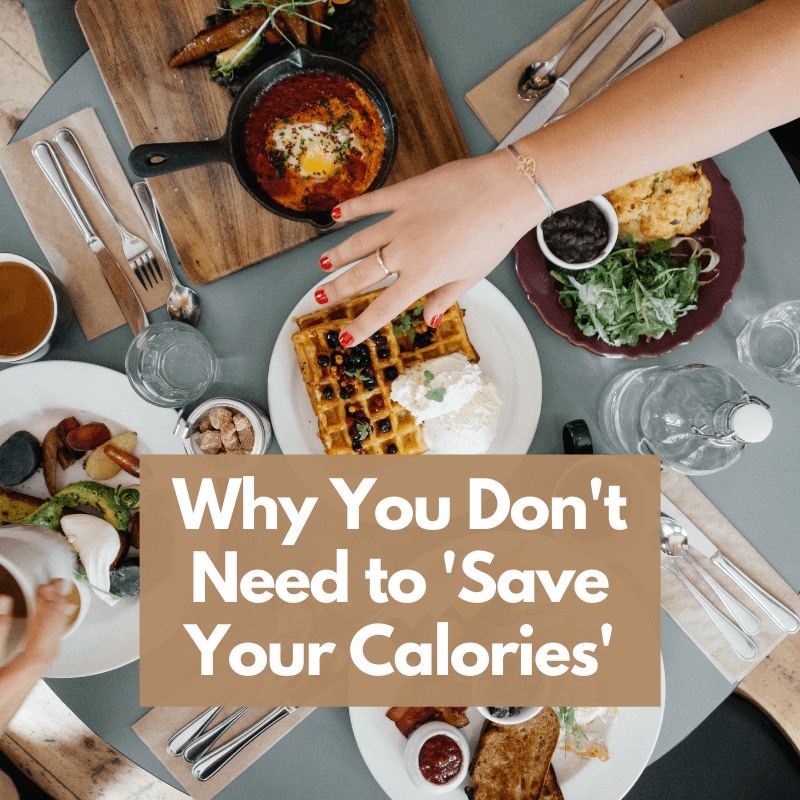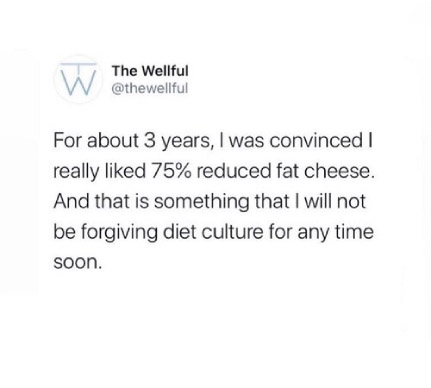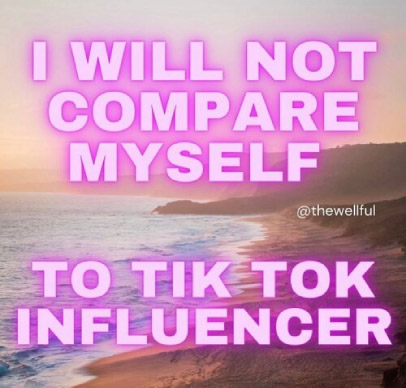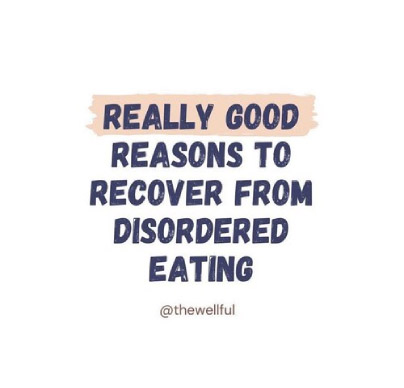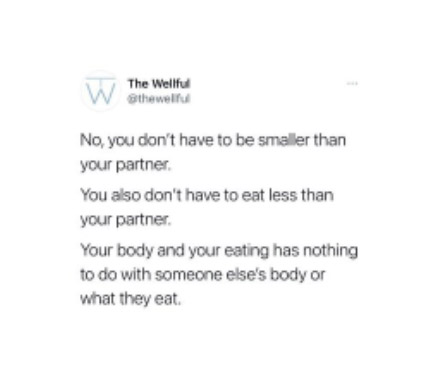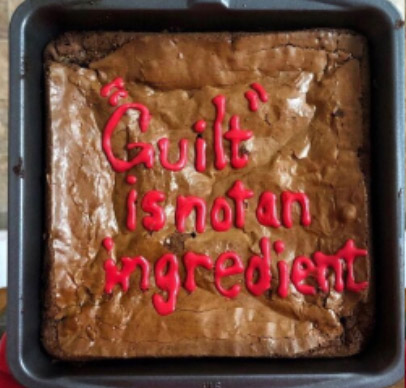We’ve all heard it before. Maybe it was your mom/aunt/cousin/grandfather, but somebody might have once whispered “save your calories” to you. And for the record, that person was so wrong.
Diet talk is ever present. It comes from every direction: social media, work, family, friends. It can feel overwhelming and like the only choice, but let me remind you that it is not. Life outside dieting exists, and it is much more rewarding than counting your almonds for an afternoon snack.
Unfortunately, even if you know that diet talk isn’t worthwhile, it doesn’t mean that the people around you won’t discuss it. Diet talk is so ingrained in our culture that many people do not realize the power it holds on them, their choices, and their daily life.
The start of a new year and/or a global pandemic that includes stay at home orders highlights a lot of diet culture messages. Try your best to avoid them: change the conversation, disengage, provide pushback to those who tell you to watch what you eat.
You know your body, your hunger, and your needs better than anyone else.
So if your uncle/mom/grandfather/cousin/friend tells you to “save your calories” or to “watch what you’re eating so it doesn’t go to {insert body part,}” it is not true. You do not need to change the way you eat in order to “earn” your next meal.
That is not how it works.
Nobody has a pie shaped bump on their thigh. Nobody has a broccoli crown, a cookie, or potato chips imprinted on their belly. It just doesn’t work that way. Food is energy and we do not get to choose how the body uses it.
And more importantly, nobody has any business commenting on your body or the food that’s on YOUR plate. Only you know how much food you need to be satisfied, and that amount does not need to change because of an upcoming special meal or a change in activity level.
When the body detects insufficient energy (food), it is interpreted as famine.
Kind of intense, right? But the truth is, your body does not know when you are trying to limit your intake to “save up for a meal,” and instead it believes that it is getting less food because there is not enough food available. Though insufficient food is not usually the reason behind reduced intake,* the body is unable to differentiate between a diet (cough cough “saving calories” or other forms of restriction) and famine.
*I want to address the fact that “saving calories” is a privilege for people who are food secure. Not all people, however, have consistent access to food, and therefore they cannot always choose when or how much food to eat.*
You do not need to “save your calories” for a specific meal.
I promise.
In fact, spending energy throughout the day trying to avoid food or always choose the smallest option, may leave you hangry. It’s pretty hard to enjoy activities, family, and/or friends when you are at your tipping point. AND, when you are hangry, it is pretty hard to tune into your hunger and fullness cues, meaning that it is more likely that you will eat past fullness. Also a pretty crummy feeling…
I mean, can you blame your body? If it thinks it’s in a famine and then suddenly you are surrounded by copious amounts of delicious food… the next step is pretty obvious:
Eat and eat until you cannot stomach another bite.
Eating past comfortable fullness is part of life. Your body is equipped to handle it. There is nothing you need to do or change in order to help with the process. Just take a deep breath, know that the discomfort is temporary, and give yourself a break. It happens to everyone!
What you can do instead
When you fully allow yourself to accept all foods without the labels of “good/bad” or “healthy/unhealthy,” food becomes less daunting. It feels less like a “this is my only opportunity to eat this food so I better stuff myself” and more like a “this food is delicious. If I start to feel full, I can always save leftovers for tomorrow or later tonight.” There is no rule that says certain foods are only allowed one day of the year or only on weekends, that’s diet culture talking.
So, cut yourself some slack. Emotions are high, traditions are changing, and an air of uncertainty is lingering. Don’t let hanger or the preoccupation with consuming as little as possible replace some of the good moments in life.

